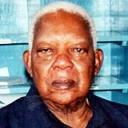Following complaints in parliament and elsewhere about the agreements being signed with foreign mining companies for the extraction of gold, President Kikwete appointed in November a 12-member special commission to review existing mining contracts under the Chairmanship of former Attorney General Mark Bomani. The big surprise was the inclusion in the list of members of the celebrated Kigoma North MP Zitto Kabwe. Some CHADEMA party leaders doubted if their MP could be effective in the Commission, given its composition – Majira.
Terms of references include the reviewing of mining contracts and other documents related to commercial mining, evaluation of the taxation system in the minerals sector, and the rights and responsibilities of the investors and the government. The Committee was instructed to meet with the Chamber of Mines and other key stakeholders before giving its recommendations – Guardian.
The Presidential Commission on the mining industry has started touring the country to collect evidence at the beginning of January. People living near the Bulyanhulu gold mines in Kahama district told the Commission members that they had lost confidence in local leaders and officials, as they sided with the investors and were on their payroll.
One villager, said that the people near the mine were being ‘gagged with sweeteners’ they received from the investors. He said that before the committee arrived the mining firm entertained the villagers to a meal so that they would remain silent. “We are glad the presidential committee is here, especially with Hon Zitto Kabwe as a member, because we hope you will take our message said the villager – Majira.
During their visit to Kishapu district on January 4th villagers were reported to have jeered their CCM MP accusing him of siding with the mining firm in evicting them from their farms without following legal channels and without compensating them. The villagers told the Commission that the investor was also supported by the police and the mining officer. The meeting became unruly and so Chairperson, Mark Bomani, took the microphone and told the people that they were there to collect opinions on the mining sector and not to talk about their MP. When MP Zitto Kabwe spoke he received a warm welcome from the people – Tanzania Daima.)

 Chief Abdallah Said Fundikira
Chief Abdallah Said Fundikira